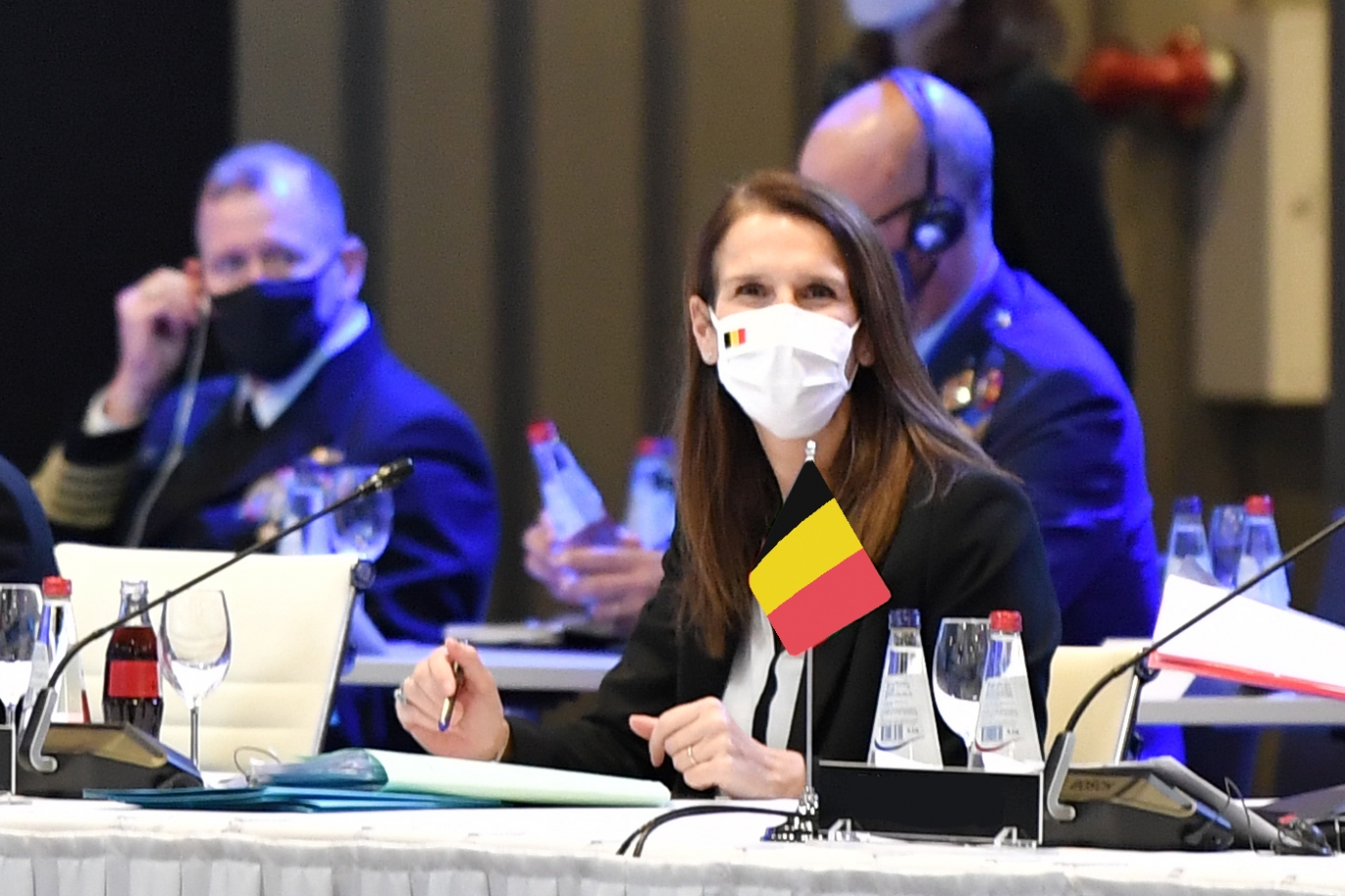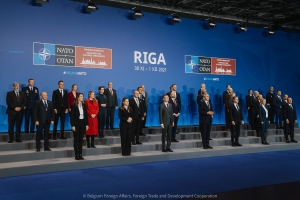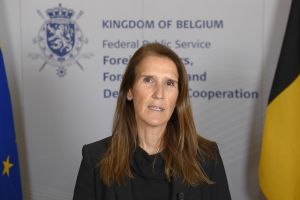NATO Ministerial meeting in Riga: conclusions (Day 2)
Deputy Prime Minister and Minister of Foreign Affairs Sophie Wilmès visited Riga (Latvia) for a meeting of NATO Foreign Ministers. The ministerial meeting lasted two days (see press release NATO Riga Ministerial meeting: conclusions (Day 1)). On Wednesday, the Deputy Prime Minister began with a first meeting with the Ukrainian and Georgian Ministers to take stock of the situation in the region, following on from the previous day's discussions. The Allies have reiterated their support for these close and valued partners. This was followed by a session on evaluating the Allies' engagement in Afghanistan and the lessons to be learned from this episode. The last session focused on the Western Balkans. Alongside the ministerial working meetings, the ministers met - at France's initiative and in a reduced format - to discuss the situation in the Sahel.
Working session on Afghanistan
As a basis for the discussions, NATO has produced a report on the lessons to be learned from its 20-year presence in Afghanistan. A number of major lessons, both positive and negative, can be drawn from this analysis. Deputy Prime Minister Wilmès welcomed the exercise and said that the final report met expectations. "Our presence in Afghanistan, decided on 20 years ago, was necessary to fight against and protect ourselves from the terrorist threat. During this period, NATO has demonstrated its cohesion and its political and military capacity to take on a crisis management mission of this magnitude. I am also mindful that the Allies' presence has improved the living conditions of the Afghan people, even if we must unfortunately acknowledge the fragility of these gains. We cannot abandon the Afghan people, especially its women and girls," said Deputy Prime Minister Wilmès.
"We also cannot turn a blind eye to the difficulties we have encountered, especially at the end of our mission. The decision to withdraw, first of all, illustrated the urgent need for enhanced political consultations among the Allies. Admittedly, there have also been shortcomings in the reporting of the situation on the ground, which is vital for a proper analysis of the situation. The mixed results of the capacity building of the Afghan security forces call for improved consideration of the societal and cultural context of the countries in which we operate, as well as the absorption capacities of our partners. Belgium hopes that all the reflections on Afghanistan will feed into the revision of the 'Strategic Concept' and help to improve the planning and conduct of current and future operations."
Western Balkans
Ministers also discussed the Western Balkans in view of the deteriorating situation in the region, in the presence of Finland, Sweden and the EU High Representative. The Balkans are of strategic importance, as the stability of the region is crucial for Euro-Atlantic security. Close cooperation between NATO and the EU is essential and the efforts of both institutions in the region are particularly complementary. Belgium supports the current NATO and EU missions in the region, thus contributing to the stability and security of the Balkans.
Sahel
Alongside the NATO Ministerial meeting and at the initiative of France, a meeting was held between the partner countries involved in the Sahel (Barkhane, Takuba and EUTM missions in particular) to take stock of the political situation in the region. The postponement of elections in Mali and the possible presence of the Wagner group are two major sources of concern for Belgium and go against the commitments made by the transitional authorities to its citizens and the international community. Beyond the fight against insecurity, our country has always encouraged a civil and political awakening in addition to structural reforms. These are essential elements in the necessary strengthening of State legitimacy and the deepening of democracy.



